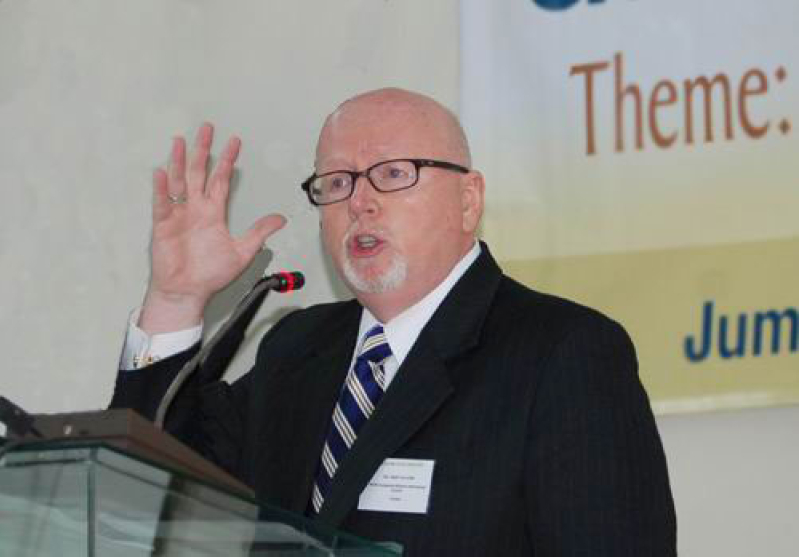
NAIROBI, KENYA - Representatives of the worldwide evangelical and ecumenical movements have gathered in Nairobi, Kenya, this week to pave the way for closer collaboration.
The Global Christian Forum has brought together international Christian leaders from a broad spectrum of denominations and traditions, including Dr Geoff Tunnicliffe, International Director of the World Evangelical Alliance, and Rev Samuel Kobia, General Secretary of the World Council of Churches (WCC).
On Wednesday, the two leaders agreed that there was a need to continue the forum process, which provides an open space for serious dialogue and conversation around issues of global Christianity.
This open space also provides the opportunity to create greater understanding, dispel stereotypes and to provide an understanding of areas of common concern.
Dr Tunnicliffe said: “I’m delighted that many of our Evangelical leaders from around the world are participating in this global forum. We believe that this new neutral table is providing an unprecedented opportunity for us to engage with the broader church that will promote greater understanding as well as a commitment to religious liberty.”
Rev Kobia, meanwhile, commented that the gathering of so many different Christian traditions at the forum was “unprecedented”.
“The future is very promising,” he said.
He welcomed the presence of Pentecostals and Evangelicals at the forum, saying that it had helped to overcome some of the prejudices that existed among them, and although he appealed to both to “clarify where they are on issues of social engagement”, he welcomed their growing involvement with such issues.
Joint social engagement in climate change and poverty offered Pentecostals, Evangelicals and ecumenical bodies like the WCC the opportunity to overcome the “scandal” of disunity by increasing mutual understanding through closer collaboration, he added.
“As we continue now to understand each other, we will achieve greater trust and confidence to the extent that we can make a statement on how Christians view an issue like climate change, for example,” Rev Kobia told Christian Today.
“That would be very powerful if we were to speak together as Christians and use the Bible and our traditions as the basis on which we address certain issues. That would be tremendous.”
At an informal fringe meeting, Evangelicals at the GCF raised concerns about issues of language, particularly the use of the term ‘mission’, but remained largely positive about the prospects for ever closer unity within the global body of Christ.
Katei Kirby, head of the African and Caribbean Evangelical Alliance in the UK, spoke of a “genuineness of wanting to reach God together”, while Godfrey Yogarajah of the Evangelical Fellowship of Asia said it was necessary for evangelicals and ecumenicists to tackle the “real issues of what still divides us”.
“Otherwise our relationships will just remain superficial,” he said.
Dr Tunnicliffe concluded, “This forum couldn’t have happened 25 years ago, so we have made progress. The fact that Evangelicals are being treated as equals signals a new day.”







